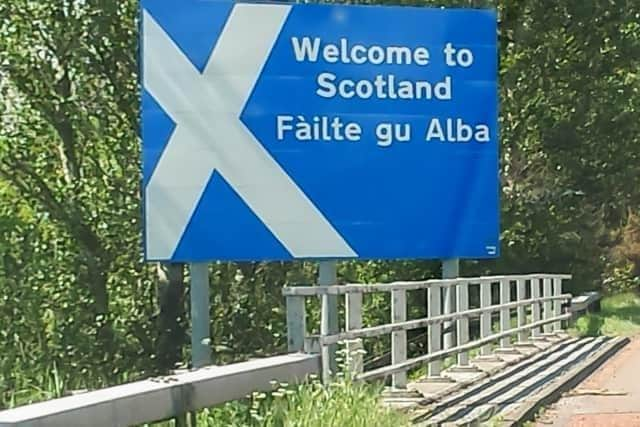Gaelic should be used on Scottish Parliament ballot papers, says quango
Bòrd na Gàidhlig (BnG) said elections are a fundamental part of national life, adding: “As such, they are ones where Gaelic and the English language should be given equal respect.”
It pointed to the precedent set by Wales, where the Welsh language is used in publicity for elections and on the ballot papers for elections to the Senedd.
Advertisement
Hide AdAdvertisement
Hide AdBnG made the comments in response to a Scottish Government consultation on electoral reform, which also looked at whether 16 and 17-year-olds should be able to stand for election.


The quango said one means of increasing participation in elections would be to use Gaelic language materials in publicising them, adding: “This would encourage users and learners of Gaelic to participate in the electoral process. This would support efforts to increase registration levels and, thus, increase voter turnout.”
It continued: “Including Gaelic language election materials alongside those in English would provide equal respect to the two languages. It can also be argued that the use of Gaelic in such a key activity – i.e. elections – is necessary in order to maintain its relevance as ‘an official language of Scotland’.”
BnG said extending the use of Gaelic to such materials would help meet the Scottish Government’s own language policies and the aims of the National Gaelic Language Plan. It said: “This could include the use of Gaelic on election ballot papers in Scottish Parliament and local authority elections. There is a precedent for this.
“The Welsh language is used in local authority and community council elections in Wales, including on ballot papers and polling station signage. This was extended in 2017 with the heading on the ballot papers including a Welsh translation. Previously ballot papers included voting instructions in both languages but details of the election at the top of the ballot were only written in English.
“In Welsh Assembly elections both first past the post and additional member votes have instructions in Welsh and English, while the additional member ballot paper also includes the parties’ names in Welsh.
“We also note that the Electoral Commission provides a bilingual service – i.e. both in English and Welsh. That includes promoting the use of electoral services in Welsh and promoting elections through Welsh in the media. In contrast, the Electoral Commission in Scotland provides no services in Gaelic.
"More widely, greater use of the language by Gaelic users should be viewed as contributing towards their individual well-being. Language and culture create self-esteem, nurture self-confidence, define identity and improve quality of life. This increases well-being for users, learners, and supporters – who have great pride in the language and culture. It contributes positively to what these people think and feel about their lives.”
Advertisement
Hide AdAdvertisement
Hide AdA Scottish Government spokeswoman said: “All responses to the consultation will be carefully considered. Gaelic and Scots are significant elements of Scotland’s culture and we are committed to seeing them both thrive and grow across the country.”
Comments
Want to join the conversation? Please or to comment on this article.
